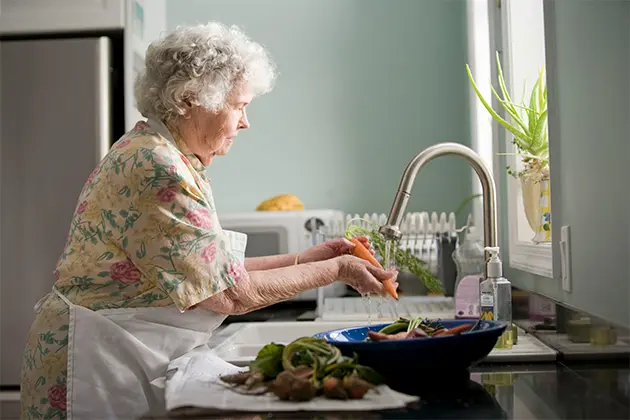Care and support are some of the basic securities a person essentially needs while growing older. Seniors receiving home care would have personalized assistance availed easily to them with the comfort of their home, which actually is a need for the body and mind. It is pretty important that decisions regarding options of care for loved ones consider the large benefits involved in senior home care.
Promoting Independence and Autonomy
Perhaps the most important single factor is that senior homecare encourages independence and autonomy of the older adults. Unlike nursing homes or assisted living facilities, which have many restrictions and routines that often turn out at the behest of an institution, homecare provides the greatest level of control over daily life for seniors. They are allowed to choose schedules, meals, and activities themselves, which evokes a sense of empowerment.
Nurturing Emotional Well-being
As important as physical health is, emotional health becomes key for seniors, and homecare indeed can play a very relevant role in upping their quotient of emotional well-being. To begin with, home is where the comfort zone of security and familiarity can be felt, and this would greatly reduce anxiety and depression often associated with institutional confinement. Besides, homecare providers usually share a good, trusted relationship with their clients. Such contacts can help to overcome loneliness and isolation so prevalent among solitary seniors. Companionship from the caregivers can also include conversation, activities, and outings with the seniors, which will add to their emotional well-being.
Customized Care Plans
Customizing the care plan is yet another plus that this facility offers to enhance the quality of life. Homecare agencies assess a client’s specific needs and create a personalized care plan to meet those needs. This personalized approach keeps seniors at the right level of care, whether it is assistance with activities of daily living, medication management, or special care for chronic diseases. As such, the senior can lead a more enriching life as the care becomes increasingly personalized to their shifting needs and preferences. Understanding such nuances empowers families to make informed choices about home care assistance for a loved one, thus assuring his or her improved quality of life.
Family Caregiver Support
Relatively, the responsibility of taking care of an elderly loved one usually falls on a family member, but often this becomes overwhelming. Senior homecare fills the very important need for family caregivers by allowing them much-needed respites. When professional caregivers step in to take care of loved ones, families are in a position to have peace of mind, knowing full well that quality care is accorded to their loved one. By having some support, family members will not be stressed and can attend to their well-being, too, and in cultivating their relationships with their loved ones without the strain of constant caregiving.
Access to Professional Care
Seniors receiving homecare have access to professional healthcare services geared to meet their individual needs. The general composition would include skilled nurses, therapists, and other healthcare professionals who can offer specialized care services by closely monitoring the health conditions of the patients to ensure timely treatment of ailments for better health outcomes. It minimizes the possibility of complications, as more frequent check-ups and interventions at home are allowed, enabling the elderly to enjoy healthier, active lives. Trained professionals will also guarantee the family members confidence that their loved ones are receiving appropriate medical attention.
The quality of life in senior home care is deep and multidimensional. These make great changes in the daily life of a senior through fostering independence, enriching emotional lives, and offering personalized care plans. Furthermore, health outcomes are improved and satisfaction enhanced not only with regard to supportive care given to family caregivers but also through access to professional care services. Moving toward the future, societal acceptance of homecare as a valuable service will be a critical link in the development of policies that ensure seniors can live stimulating and dignified lives within the comfort of their own homes.










